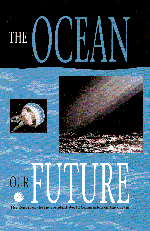6 - Towards Effective Ocean Governance
Published online by Cambridge University Press: 05 August 2012
Summary
In this report, we have looked at many of the challenges that confront us in the oceans. While acknowledging the progress that has been recorded in a number of areas, and the importance of numerous new initiatives linked to the sustainable use and management of the oceans and its resources at different levels, we have been compelled to conclude that the global community still lacks an effective system of governance capable of ensuring that the oceans are used for the benefit of all and in the interests of future generations.
It is true that each of the past three decades made its own contribution to the emergence of an improved understanding of the relationships existing between the oceans and the long-term conservation of our natural heritage. Beginning with the Stockholm Conference on the Human Environment in 1972, growing concerns over pollution and depletion of marine resources gained voice, leading to the establishment of yet another variety of organizational structures. Environmental concerns were acknowledged in the UN General Assembly's call for a new regime of ocean law, with responsible stewardship and the equitable utilization of ocean resources as major goals.
The next decade witnessed the adoption of the UN Convention on the Law of the Sea in 1982 aimed at the establishment of a new legal order for the oceans, the promotion of the equitable and efficient utilization of ocean resources, and the preservation of the marine environment.
- Type
- Chapter
- Information
- The Ocean: Our Future , pp. 139 - 162Publisher: Cambridge University PressPrint publication year: 1998

